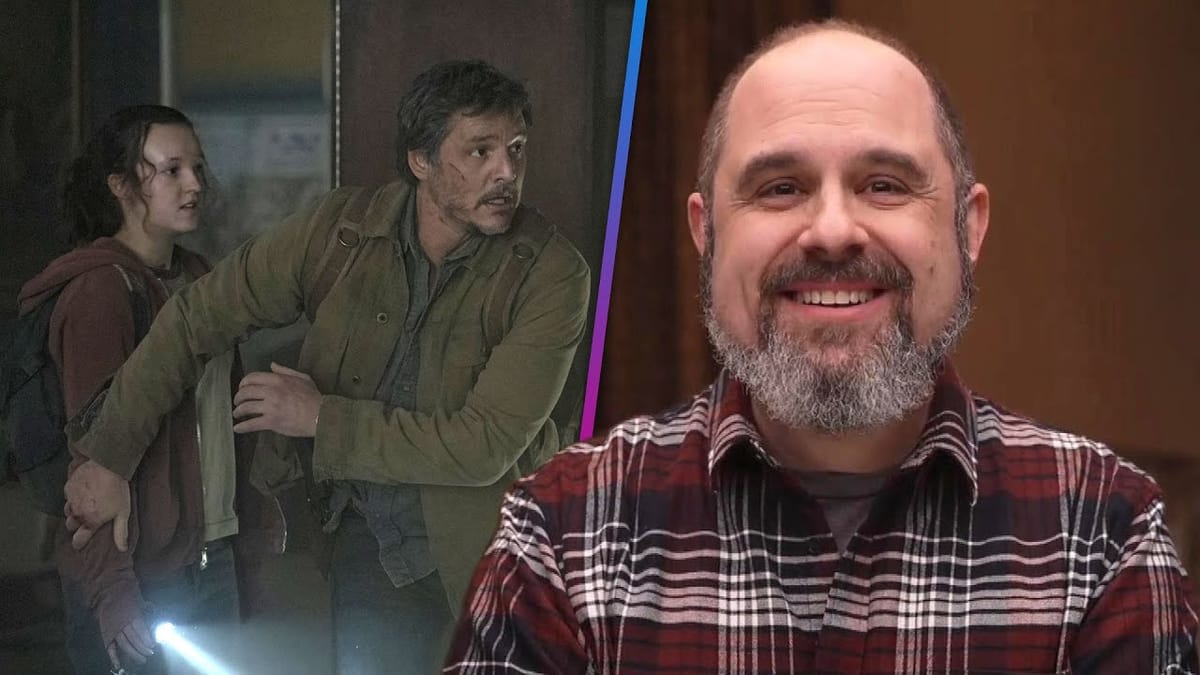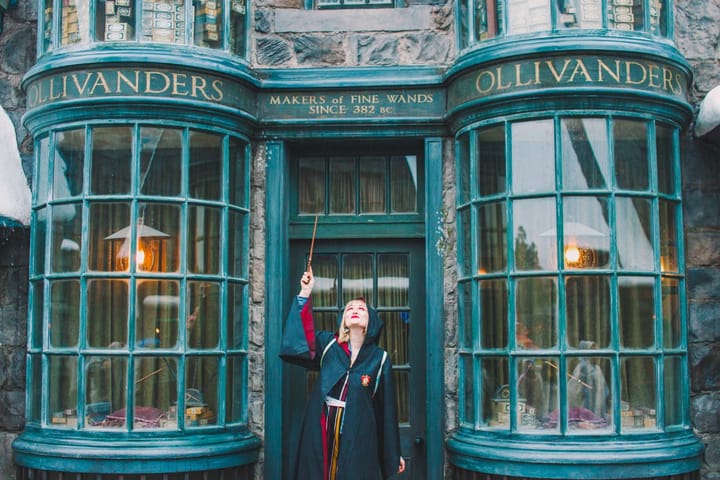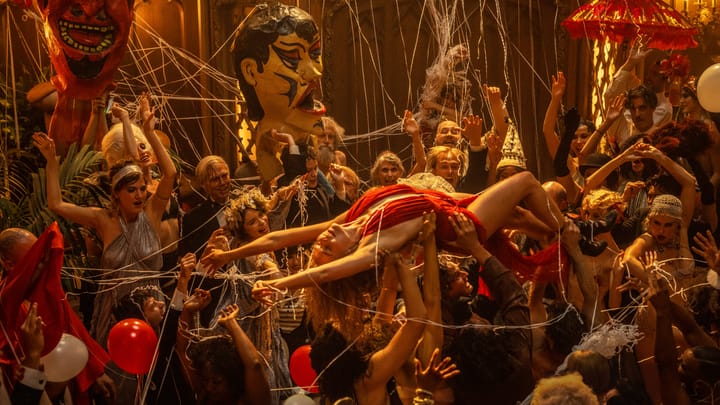The Last Word
For all the criticism and critique of these shows, even if our opinion has fair arguments, it is still incomplete as we don’t know the details of the why and how. Giving us, the audience, that insight allows for a more informed perspective. Give a more direct relationship to the artists.

One of the hard aspects of critiquing someone else’s work is that you don’t have the whole backstory of how the ideas and decisions come to create the finished product.
I’ve had this one baking for a bit since watching the episode I’ll be discussing today. I’m including that original take—not just for context, but to be candid with where my head was at before gaining a broader perspective. It also sets up a useful contrast with how my thinking has evolved with new insight.
Something about my first critique felt off. It seemed to me too negative without fully articulating the idea I was circling, one I couldn’t quite find the language for. But then, I came across something that filled in that gap. It gave me new insights that brought my foggy notions into focus—and a new fram of reference for what I was addressing in my original take.
This is now a two-part essay. First, I’ll share my initial reaction to The Last of Us Season 2, Episode 2. Then I’ll pivot to my re-contextualized thoughts, shaped by this new understanding, and explore why I now find the medium of this new information even more interesting.
Here is my original take on The Last of Us episode 202:
(NOTE: Major spoilers for The Last of Us TV series below. Turn away now if you are not caught up)
Original Take
There was a moment early in the 2010s that changed how we experience TV. There’s a great chance you already know that moment. The channel— HBO. The show— Game of Thrones. The scene— the death of a Ned Stark.
For those of us who haven’t read the books, this was a stunning turn that cemented the show in a lore of unpredictability and dread. No one was safe.
That scene changed the dynamic and trajectory of the show into a cultural phenomenon. It elevated the show to a stratosphere in scripted television that hasn’t had an equal before or since.
The reason is this wasn’t just a cheap ploy of plot twists and shock, but genuine surprise and pain (mostly in the form of sorrow). The creators took away predictability. The audience never knew what to expect (granted you haven’t read the books). It was daring, bold, and tone setting.
So much so, that it’s also quite difficult to replicate. Many have chased, mistakenly, the genre of fantasy looking to cash in as the next pop culture phenomenon. But the ripple effects are still felt as many prestige shows try to find or wedge something unique into their narrative to make them different (or ‘next’). This was also the case for the Sopranos—see Boardwalk Empire.
That brings us to The Last of Us. Season one went largely by the book for this genre and scale of show, save for the doom-prepper bottle-episode. But while there were some engaging moments during the season, it never showed out that it was something special. It would at times run up to the edge, finding something interesting, then pull back, never going all in. Seemingly waiting for a big moment that never materialized.
For season two, the creators are looking to make a splash, it seems, with the direction of the show. David Chase, creator of the Sopranos, has commented on his understanding of needing to up the stakes and push the narrative to places the audience were not used to at the time. This led to the famous, groundbreaking episode with Tony Soprano taking his daughter Meadow on a college tour tip together when he spots an FBI informant and offs him during their trip (unbeknown to her daughter). Chase wanted to remind the audience how ruthless this new ‘hero’ really is.
I think there are elements of both GOT and Sopranos in this bombshell, episode two.
Last Spoiler Alert
The shocking twist in this episode— Joel’s abrupt killing— was not expected by the majority of people watching the show—at least those who haven’t played the video game, for which I’m in this bucket.
For me, Joel’s sudden death didn’t hit right. Maybe this worked for the video game, but here it feels forced, created and unnecessary. I’m left trying to figure out what is different here compared to Ned Stark’s shocking death, where I was left with a sense of astonishment and dread.
Here, I felt cheated and empty.
They ended it before confronting the betrayal Joel committed against Elle. They ended it before a protagonist finished their arc. This show was designed as a dual-protagonist narrative— a head and a heart— and they cut out the heart. It transformed the makeup of the show.
In contrast, Game Of Thrones ethos didn’t change when Ned Stark died. Or when Rob Stark died. Or Oberyn (ha!) died. The ensemble structure absorbed major character deaths without losing its core identity. The Last of Us is about THIS relationship. Now that it’s gone, it shifts from a survival story to a revenge narrative, which feels frustratingly unoriginal.
All of this feels forced error. A reoccurring mistake that many studios are making in the wake of GOT—forcing a cultural moment, rather than earning it. It’s happened with Amazon and the Lord of the Rings series, with the new GOT spinoff series, and now with The Last of Us (this episode literally has a battle on a wall against living zombies in the winter).
They’re missing the forrest through the trees with this outlook.
The way to be like Game of Thrones is not to mimic its big moments but to offer something genuinely new. A new type of story, a new way of telling a story, a new point of view. Unfortunately, I see the direction of The Last of Us is taking, and it’s not particularly engaging.
The episode was action packed and solid on many levels, always tantalizing something bigger on the horizon but in the end fails to deliver. This, for me, has been the struggle of the show, and the move of killing your co-lead is a shock, but not game changing.
New Perspective
These were my feelings shortly after watching this episode. And while I try give creative teams the benefit of the doubt regarding the purpose and intention of the creative team of a show, this was my assessment of the show— at that time.
When I write about someone else’s work (hard work at that), I like to make sure I’m looking at it through the proper framing, allowing for counter perspectives to make sure that my opinion is balanced while honest.
But because creative work interpretation is subjective and assessed on many levels, it’s important to avoid definitive statements, leaving room for your ideas to grow, morph, and even change. Strong opinions held loosely, as it goes.
When I wrote about my reaction and feelings toward this episode’s unexpected twist, I did it with a level of guilt or hubris. Even though I’m confident in what I was talking about and strive for a balanced viewpoint, I had an underlying feeling that I could be wrong. That there was more to this decision than how I was framing it. I’ve listened to Craig Maizin’s podcast, Script Notes, in the past and know the guy isn’t a dummy. He nailed it with Chernobyl, and it felt like I was suggesting a regression in writing aptitude by an accomplished and seasoned writer.
Thankfully, my methodical rewriting process worked in my favor this time.
I recently came across for Deadline’s It Starts on the Page (Drama) featuring standout drama series scripts in contention for the 2025 Emmys. The series showcases a script from standout TV episodes, alongside commentary from the show runner or series writer, to give a deeper context to the idea behind the episode. It covers the why and how an episode comes together they way it did, and it’s impact on a broader scale.
For the Last of Us, show runner Craig Mazin gave a cogent explanation on how to view this episode and the major change that happens within it.
He addresses the thinking and logic behind the choice to kill off its main character (early) in season two. It boils down to the team was taking a creative leap, as the conventional wisdom says you can’t kill off the protagonist. But in life, doesn’t follow narrative rules— like cutting short a deep relationship without a resolution.
That last bit is what stuck with me, as it directly acknowledges one of my gripes with the choice. I still don’t full agree with the path they chose— this is a narrative story after all— but hearing their reasoning gives me an appreciation for what they are attempting.
Reading Mazin’s introduction is not only a breath of fresh air, helping me find my way through a foggy forest, but I think the way forward for any creative endeavor.
I’ve thought for a long time that understanding the intention and thinking behind a creative’s intent is a wildly underrated and underutilized aspect of trying to understand what you are watching.
The traditional framing of the artist-audience relationship is the artist creates a work, puts it into the world, the audience watches, gives their take. Missing in this is a conversation between the two. This format is basically a one-way street. So much so, a common refrain is that once it’s released to the public, they own it, not the artist.
But as the media landscape has, and continues to, undergone massive shifts, so does the relationship between audience and creators. With the democratized ability of giving everyone a voice, so too should the maker of the workbench included in the conversation, not just the work itself.
What I love about the idea of allowing the creator to share their thinking, in this case Craig Mazin, is they get a chance to set the stage, to offer a framework to what you have seen or about to see.
Because for all the criticism and critique of these shows, even if our opinion has fair arguments, it is still incomplete as we don’t know the details of the why and how. Giving us, the audience, that insight allows for a more informed perspective.
With Craig’s note, I now have a less critical, more open feeling toward what they did in this episode. It doesn’t fully change my opinion of what transpired. But it answered many of my critiques and questions, giving me a proper framing to their perceptive that I had not thought of, but think is eminently powerful— life happens unexpectedly.
I want more of this direct relationship to the artists. I think everyone deserves it. We live in a connected time, with a rapidly evolving media landscape and an exceedingly mature audience that at the same time has calcified with cynicism over basic principles of storytelling. It has become a game to point out the scaffolding for the sake of a hot take.
It feels like we are at a moment in need of a recalibration and relearning of how to watch and interpret our shows and movies. I think it is important to understand the mind-frame and intention of the filmmakers. We discuss these shows and films ad nauseam online, why shouldn’t the creators have a say in the discourse?
We have the outlets and connections to make this happen, and I think people are craving. This Deadline series is an example of one great tool that could make that happen.
I encourage you to read the whole series, as it’s concise and enlightening. And will give you a new perspective on how writers and directors think about their shows.





Comments ()